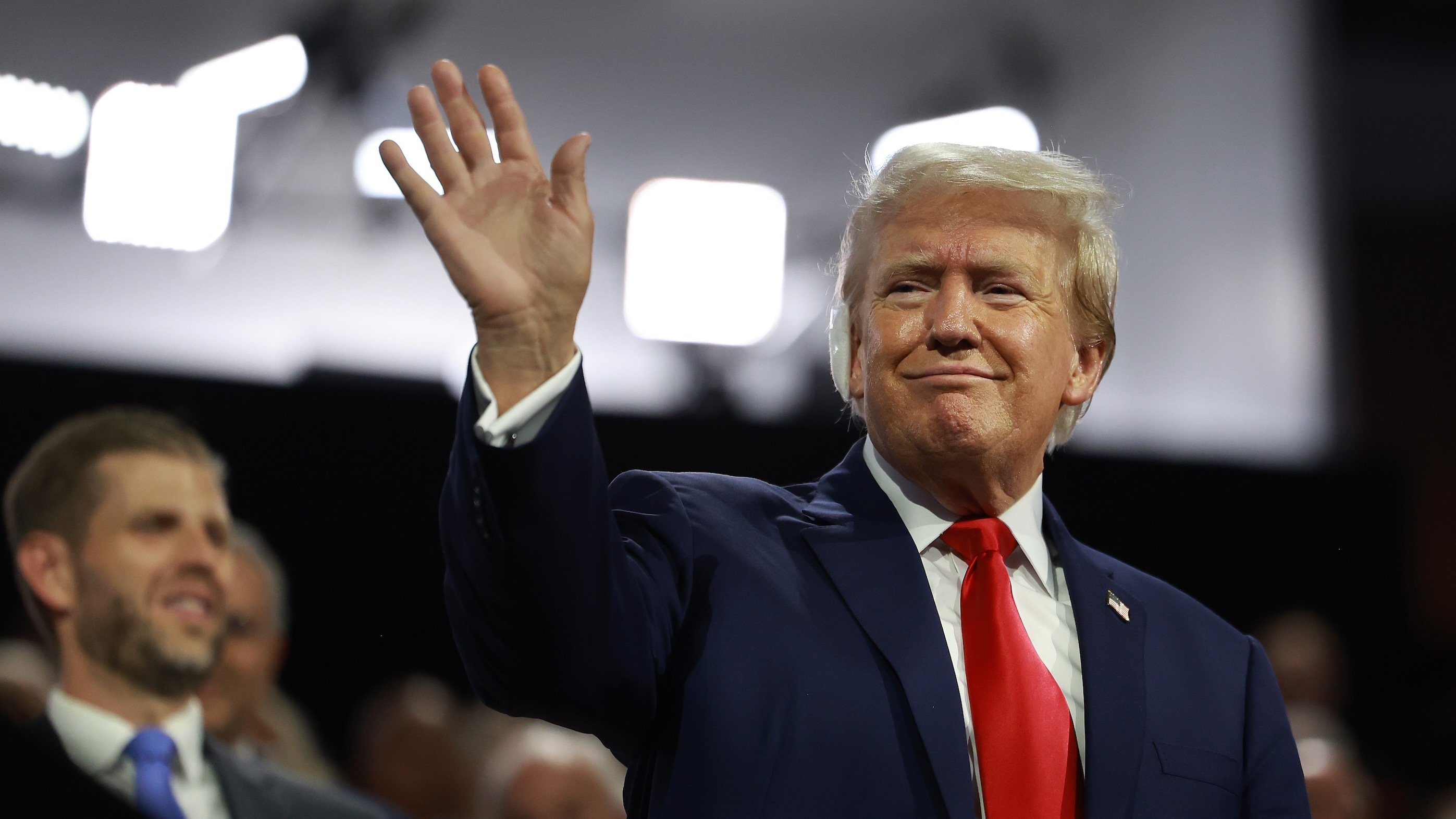The US has long pledged to defend Taiwan, which is crucial to chip production for PCs and smartphones. But new remarks from former President Donald Trump cast doubt on that commitment.
“I think, Taiwan should pay us for defense,” Trump told Bloomberg in a newly published interview that was conducted last month. “You know, we’re no different than an insurance company. Taiwan doesn’t give us anything.”
Bloomberg asked Trump directly if he would defend Taiwan from China, which views the island as its own territory. The former president, and current GOP nominee, didn’t say yes or no. Instead, he suggested the current defense arrangement is unfair to the US because Taiwan took "about 100% of our chip business,” he said. (One report estimates about 92% of the most advanced chips below 10-nanometers are produced in Taiwan.)
Trump then went on to say China is focused on retaking Taiwan, partly with the goal of controlling the island’s chip factories. “I wouldn’t feel so secure right now, if I was [Taiwan], but remember this: Taiwan took our chip business from us, I mean, how stupid are we?” he added. “They took all of our chip business. They’re immensely wealthy. And I don’t think we’re any different from an insurance policy. Why? Why are we doing this?”
The main chip producer in Taiwan is TSMC, which builds processors for AMD, Apple, Qualcomm, and Nvidia. (Nvidia produces AI-focused GPUs used for ChatGPT.) Even Intel is tapping the company to produce some chips. Although TSMC is building a cutting-edge factory in Arizona with federal subsidies, Trump nevertheless accused Taiwan of leeching resources from the US.
“Now we’re giving them billions of dollars to build new chips in our country, and then they’re going to take that too. In other words, they’ll build it, but then they’ll bring it back to their country,” he alleged.
In contrast, President Biden said in 2022 that the US would defend Taiwan from a Chinese invasion. He also signed the CHIPS Act to boost US semiconductor manufacturing, which has meant billions for Intel, Micron, Samsung, and others to build US chip factories.
In the same interview, Trump also reiterated he no longer wants to ban TikTok, a Chinese-developed app that the US fears can spy on Americans. Back in 2020, Trump signed an executive order to cripple TikTok’s presence in the US before a court halted the action.
The former president is reversing his stance due to his opposition to Mark Zuckerberg’s Meta, which temporarily shut down Trump’s account following his comments during the Jan. 6, 2021, attack on the US Capitol. “I’m for TikTok because you need competition,” Trump said. “If you don’t have TikTok, you have Facebook and Instagram, and that’s, you know, that’s Zuckerberg—who would come to the White House all the time and be so nice to me.”
Get Our Best Stories!
Sign up for What's New Now to get our top stories delivered to your inbox every morning.
This newsletter may contain advertising, deals, or affiliate links. Subscribing to a newsletter indicates your consent to our Terms of Use and Privacy Policy. You may unsubscribe from the newsletters at any time.
Thanks for signing up!
Your subscription has been confirmed. Keep an eye on your inbox!
Sign up for other newslettersRead the latest from Michael Kan
- OpenAI: Iranian Group Used ChatGPT to Try and Influence US Election
- Zero-Day Windows Bug Linked to North Korean Hacking Group Lazarus
- Windows Finally Expands FAT32 Formatting From 32GB to 2TB
- AT&T, Verizon Tell FCC to Reject SpaceX Plan for Cellular Starlink
- AST SpaceMobile Eyes Beta Launch of Cellular Satellite Service
- More from Michael Kan

 (Photo by Joe Raedle/Getty Images)
(Photo by Joe Raedle/Getty Images)











